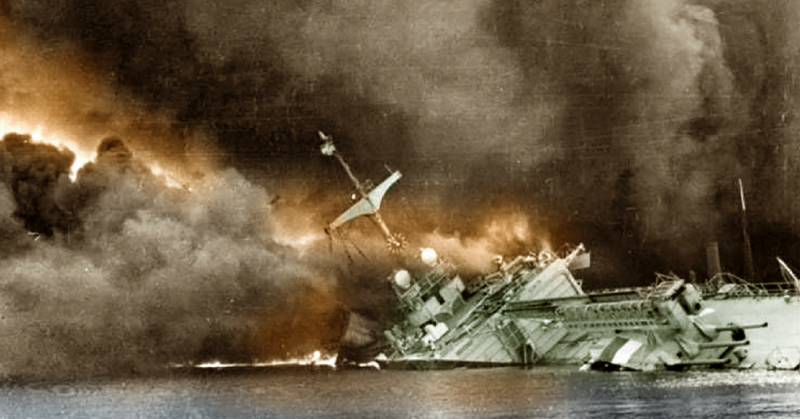British Prime Minister Winston Churchill made what he called “the most hateful decision, the most unnatural and painful in which I’ve ever been concerned” on July 3, 1940.
He ordered the Royal Navy to sail to the port of Mers el Kebir in Algiers and order the French fleet there to surrender. If the French admiral refused, they were to open fire and destroy the fleet.
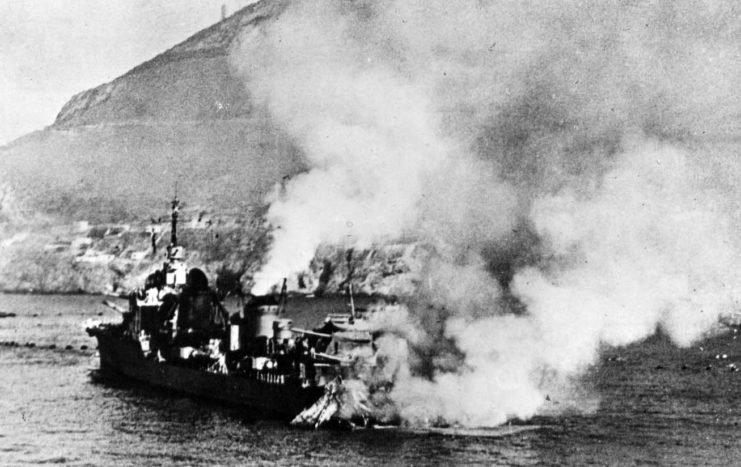
During the month of June, Churchill’s British War Cabinet worked to resolve the issue diplomatically. The British were worried that the French fleet would fall into the hands of the Nazis and be used against the Allies.
Assurances from the French that they would keep the ships from becoming German weapons did little to assuage the British fears. So Churchill was compelled to instigate the first military action between the two countries in 125 years.
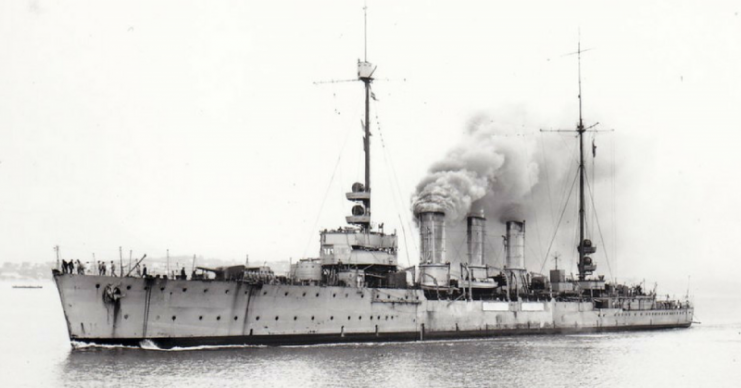
The French navy was the fourth largest in the world in 1940 falling in behind Britain, the US and Japan. They possessed seven battleships, nineteen cruisers, 71 destroyers, and 76 submarines.
With the addition of these weapons to the German navy, they would present a threat that Britain would likely be unable to defeat.
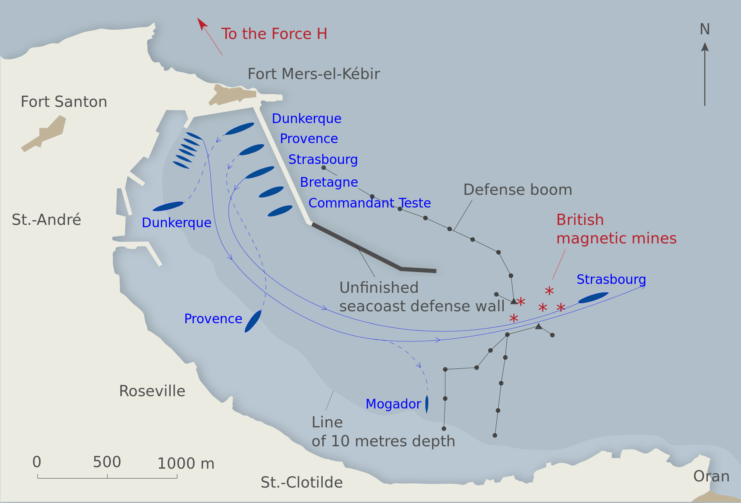
On June 20, the French signed an armistice with Germany. The agreement contained a clause that ordered all French vessels return to France immediately.
The Germans were already gathering and preparing for their invasion of Britain. Churchill needed his navy at home as soon as possible. He had no more time to negotiate or to reason with the French admiral.
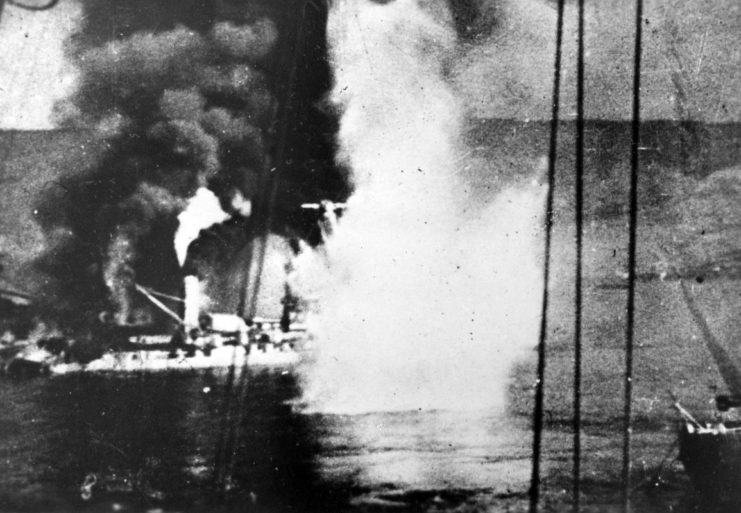
The British gave the admiral four options. He could join the British navy, sail the ships to British ports with reduced crews, take the ships to the French West Indies or a US port and decommission them or scuttle the ships at Mers el Kebir. If he refused those options, the British would sink his ships with gunfire.
The admiral did refuse all four options and the die was cast. By the time the hostilities ended, about 1,300 French sailors were dead.
From a tactical standpoint, the mission was a success. Besides the attack at Mers el Kerib, the British seized French warships which were harboring in ports controlled by the UK.
In the end, 84% of the French operational battleship strength was eliminated by the Royal Navy. The bold and decisive action gained the respect of other nations who had declined to help the British in the belief that they were about to surrender to the Germans.
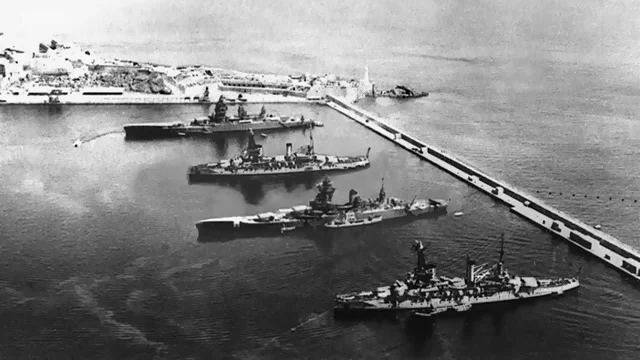
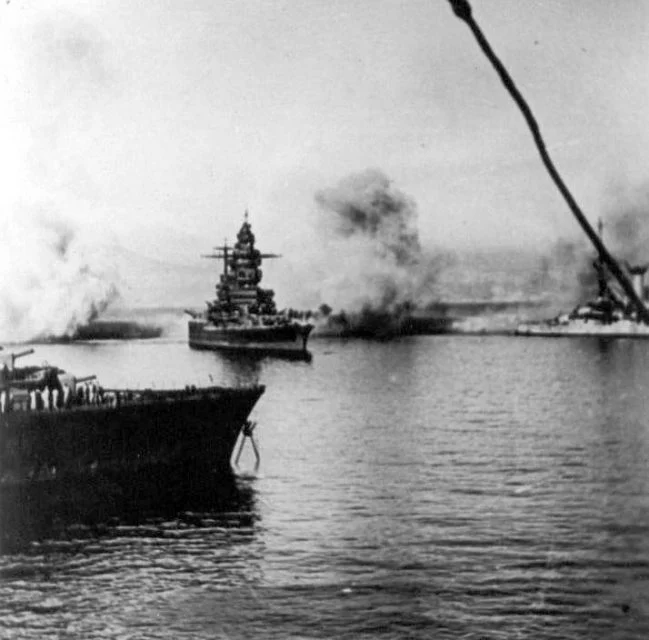
But on a human scale, the attack was a tragedy. It was so sensitive, it was not reported in Britain until long after the war ended. French families felt betrayed by the British actions and some carry that feeling of betrayal to this day.
Now, a group is raising £100,000 ($130,000) to build a memorial in the port of Brest where many of the dead sailors had lived. They intend to unveil it next year.
Jean-Aristide Brument, 75, is the chairman of the Association of Old Sailors and Families of the Victims of Mers el Kebir. He is calling on the British government to contribute to the memorial. He calls it a form of reparation for the deep wound caused by the attack.
Another Article From Us: Hero Pilot’s Book Enthralled the Country But Died Without Anyone his Knowing His Real Name
“Mers el Kebir deserves to be better known to the public on both sides of the English Channel. We must maintain the memory of these men,” he said.
